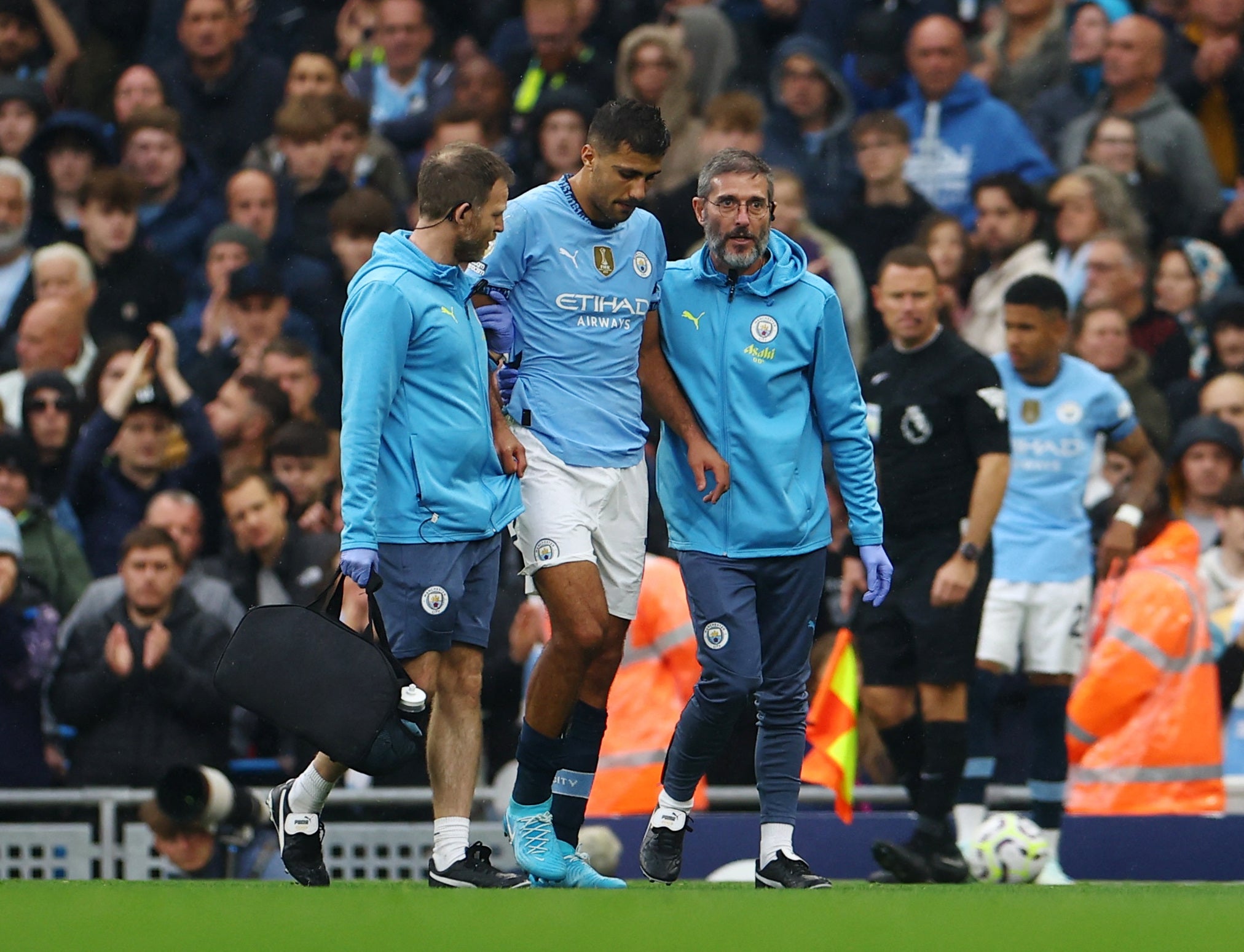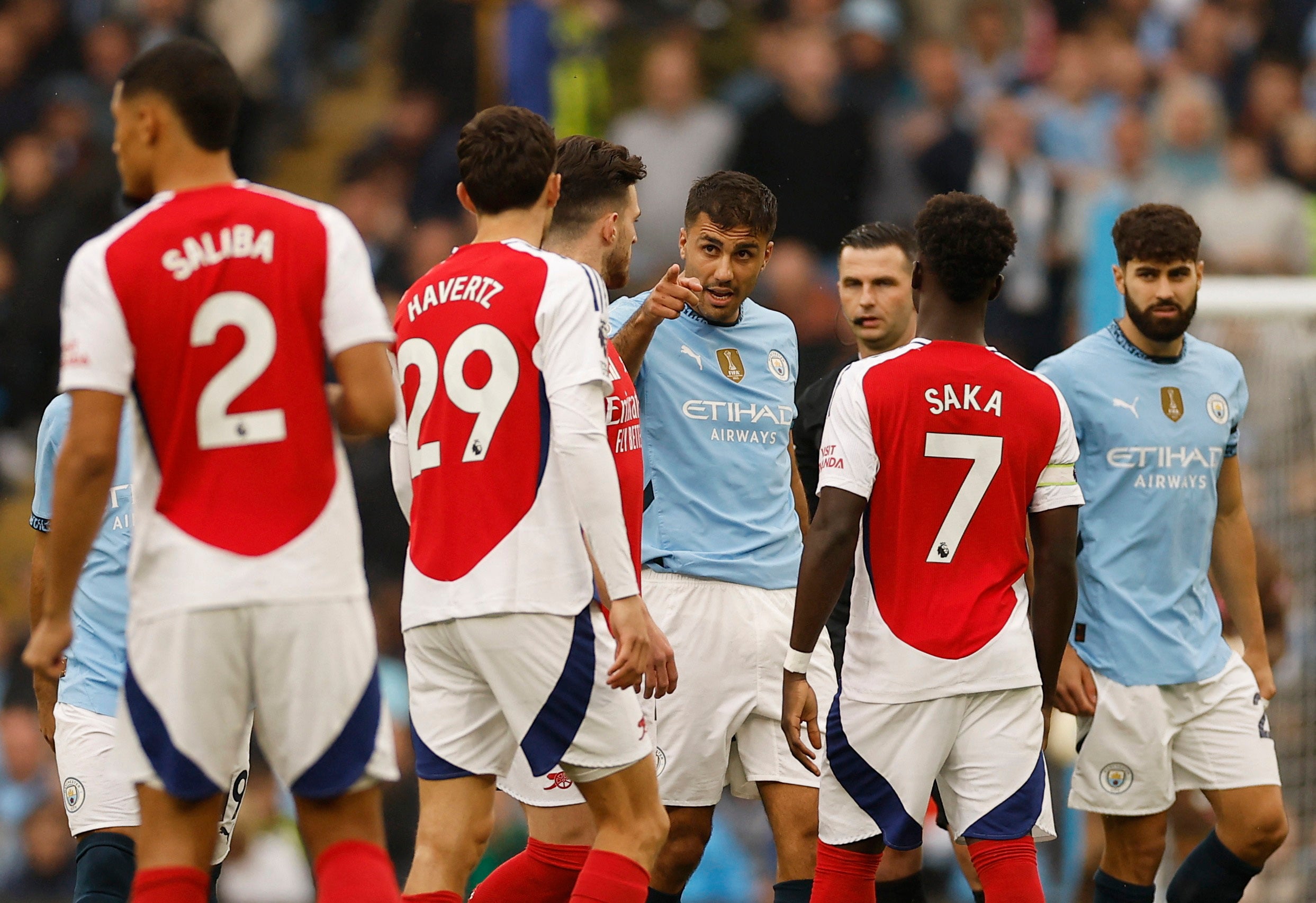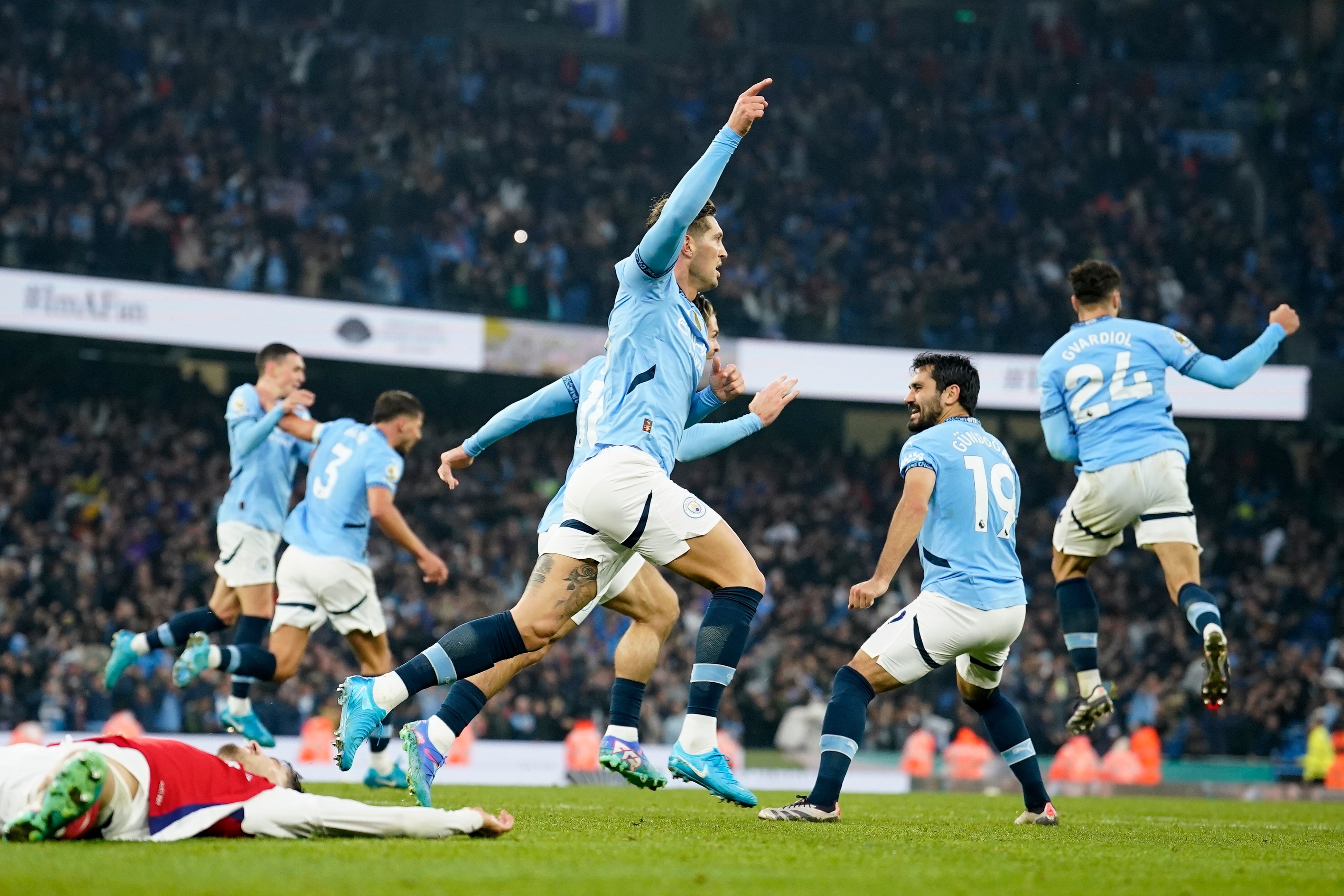Five days earlier, Rodri had been reflecting on his workload. Some 70 or 80 games a season was far too many, he said. Around 40 or 50 would be about right. And then came the moment that may make Manchester City wonder how many more than his meagre tally of three he will muster.
Rather than going on strike, as Rodri suggested players might, he could be spared matches by an extended stint on the treatment table. If Arsenal could derive plenty of cause for encouragement from their 2-2 draw at the Etihad Stadium, one had nothing to do with their set-piece expertise, rearguard action and resilience. It stretched beyond Riccardo Calafiori’s auspicious full debut, William Saliba’s defiance and David Raya’s reflexes.
Exit Rodri: from a game, potentially from much of the title race, possibly irrevocably altering it. “I haven’t spoken to the doctor,” said Pep Guardiola. There was no diagnosis yet, but an admission. Rodri would not have gone off, especially from a match of this magnitude, unless he needed to. Knee injuries can have a severity. Caught by Kai Havertz after three seconds, upended by Thomas Partey after a quarter of an hour, the man City thought was invincible and indestructible hobbled off.

Guardiola contemplated what it all meant. “Rodri is strong,” he said. “He leaves the pitch in this action because he felt something, otherwise Rodri stays there. He’s the best holding midfielder in the world. He is a potential Ballon d’Or winner. I would love for him to win.”
Winning is what Rodri does: for club and country. Or, failing that, not losing: his lone defeat in almost 18 months came in the FA Cup final. And if John Stones’ 98th-minute equaliser extended that sequence, the longer Rodri is injured, the statistic will remain true but the possibility City will be beaten grows.
Even though Rodri had not been playing particularly well, City lost control in the first half against Arsenal; without him, they conceded twice. He offers reassurance: with his reliability, with his reputation, with his physique, with his capacity to do every aspect of the game. The numbers illustrated his importance. Rodri was suspended for four games last season: City lost all four, three in the Premier League, one in the Carabao Cup.
If Mateo Kovacic had seemed to ease the Rodridependencia with his masterclass at Chelsea in August, by his own admission, the Croatian is not at his happiest anchoring the midfield. He is a passer more than a destroyer. Rodri is both.
And if the downside of having the best in the world in their position is that any alternative is automatically a downgrade, there are two indispensable figures in the City squad: Erling Haaland and Rodri. But it is compounded because they are the only specialist striker and defensive midfielder at Pep Guardiola’s disposal. It has been exacerbated by the sale of Julian Alvarez, a fine deputy to the Norwegian, and the disaster of the City career of Kalvin Phillips, supposedly Rodri’s understudy.

Thus far, City have been carried by Haaland’s goals. He has 10 in five league games. The rest of the side have three between them. Meanwhile, without Rodri, they have tended to concede. A few weeks ago, Guardiola has namechecked Manuel Akanji, Rico Lewis, Nico O’Reilly, Stones and Kovacic among the players he can use at the base of the midfield. Yet each would be better alongside Rodri than instead of him.
Since Guardiola outlined his options, perhaps the best has rejoined: Ilkay Gundogan, with his sharp footballing brain, wonderful technique and ability to dictate play. Guardiola has tended to use him more in the final third than the middle third since he returned. After Haaland, Gundogan can look City’s best goalscoring threat.
All of which had been largely hypothetical. But injury can come from exhaustion: Rodri came off in the final of Euro 2024. It was his 250th game in four seasons. If he is sidelined for some time again, it may bring echoes of Kevin de Bruyne a year earlier: hurt in the Champions League final and then again early into the next season. Rodri had raised the alarm about the dangers of a packed schedule: for top players in general. In his case, City had tried to ease him into this season but, as it became apparent Guardiola did not trust Phillips, they rarely played without him before then.

And when City seemed to be running out of ideas against Arsenal, when Kyle Walker and Ruben Dias had four long shots apiece, they missed De Bruyne’s ability to make something happen from nothing. But they missed Rodri, too: to set the tone and the tempo as well, increasingly, as being a big-game scorer.
City may not have too many major matches for the next couple of months. They can hope Rodri will be back by then. Even if he is, there could be more fallibility and fragility about them, a worry he has gone from the ranks of the unbreakable to the injury prone. And the worst-case scenario is that he is instead just injured. City have long wanted a Ballon d’Or winner. But an award could just underline the scale of the loss if they are deprived of Rodri for the long term.

